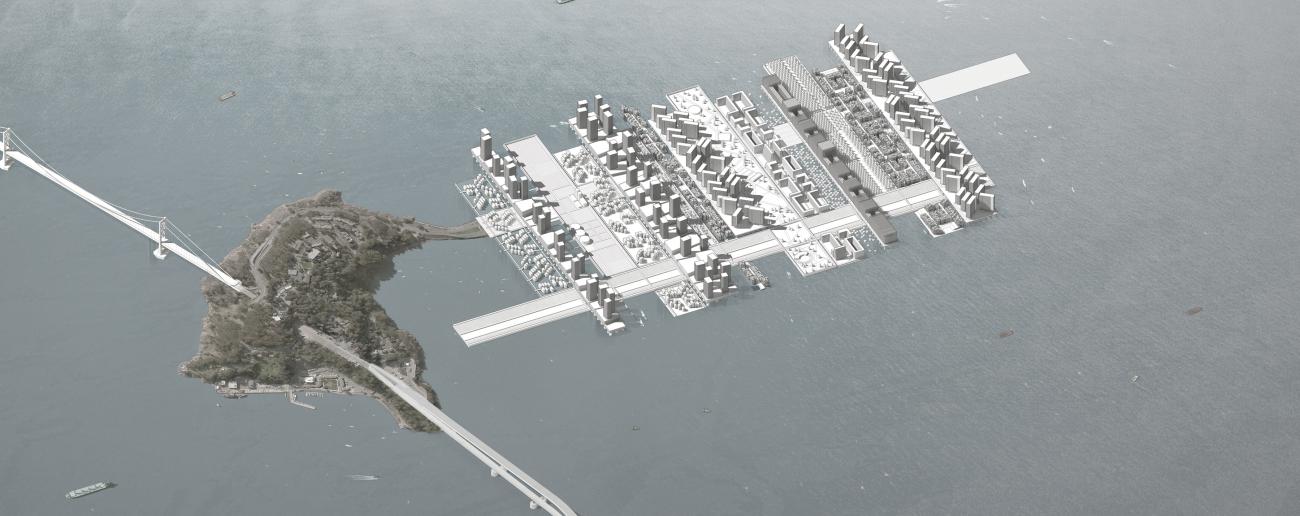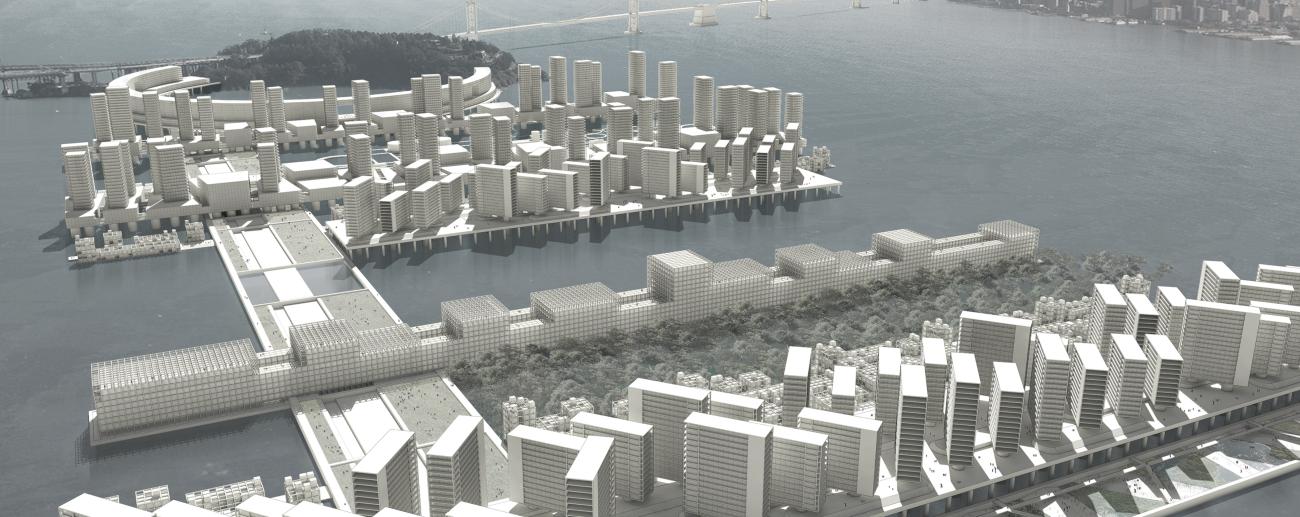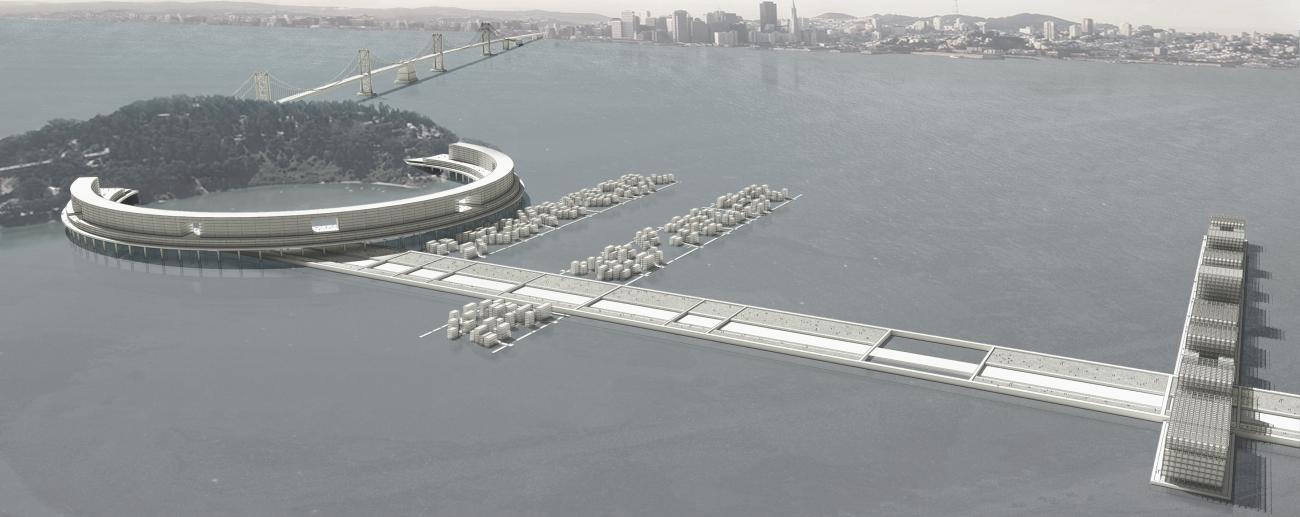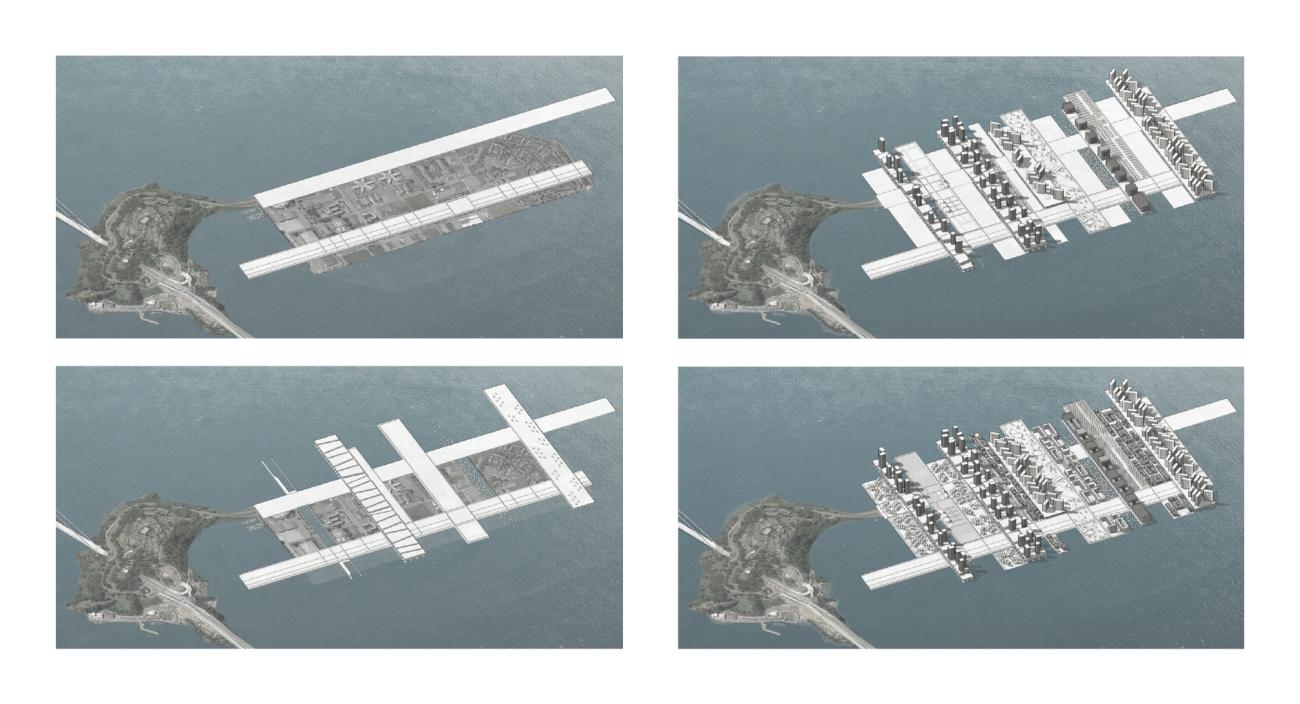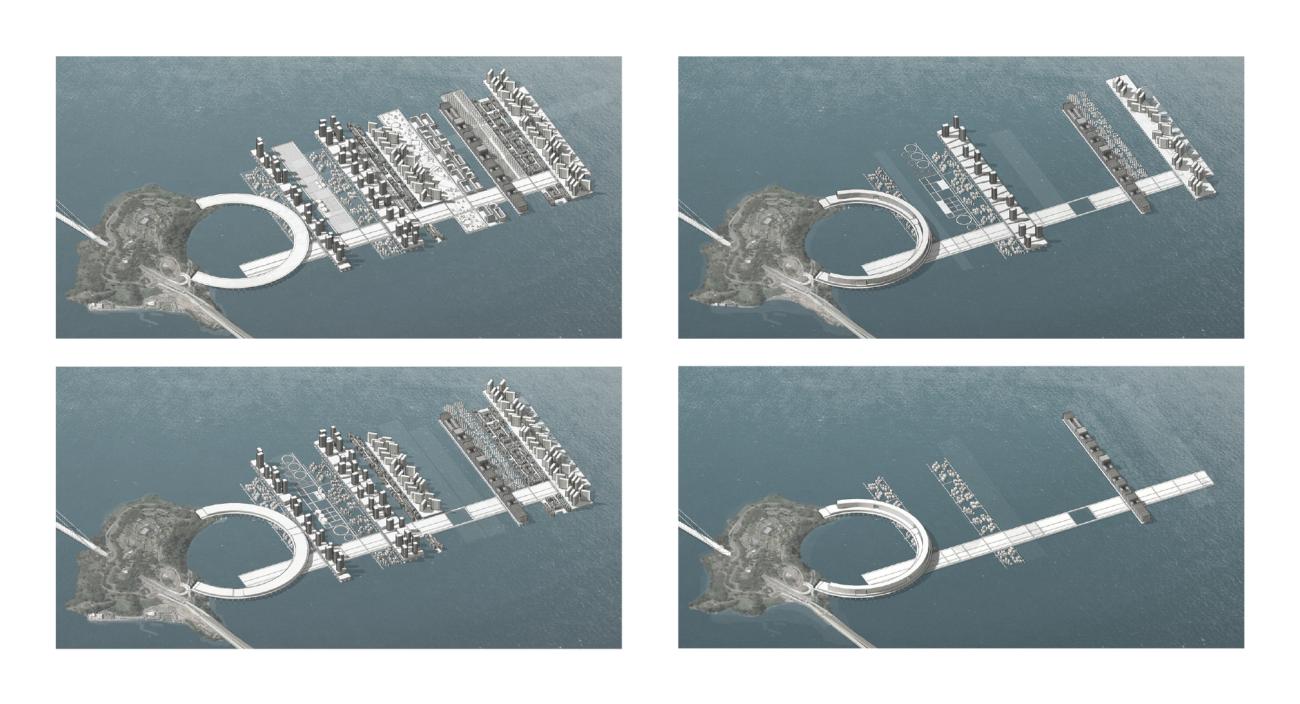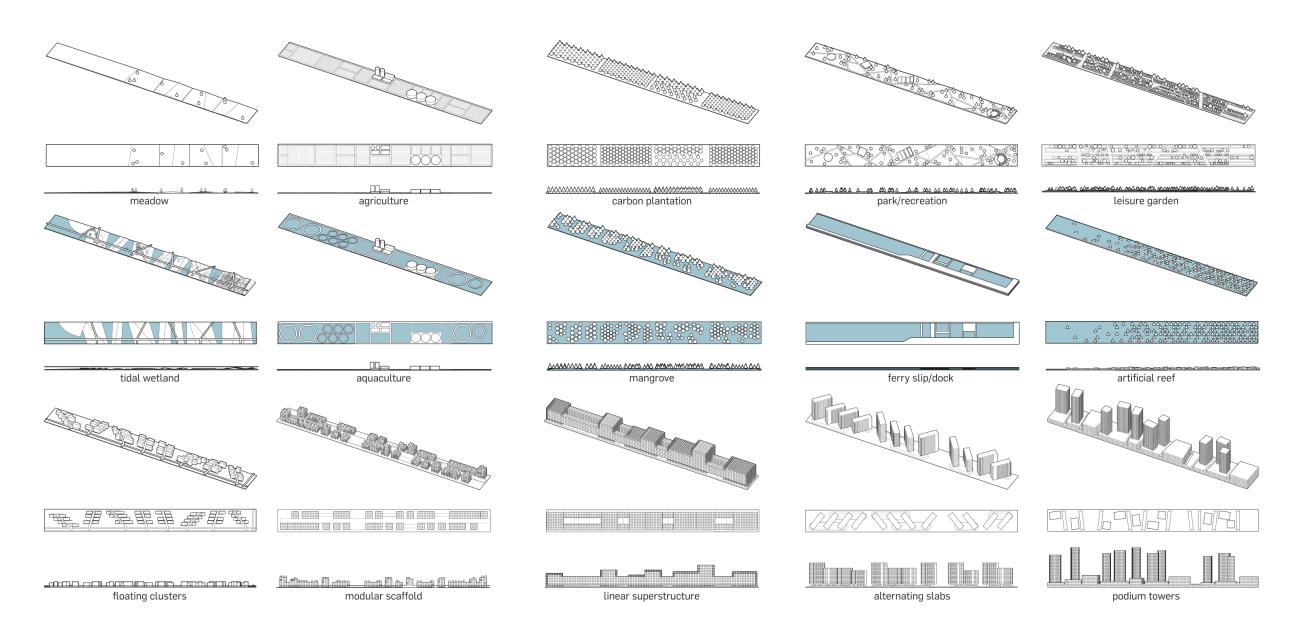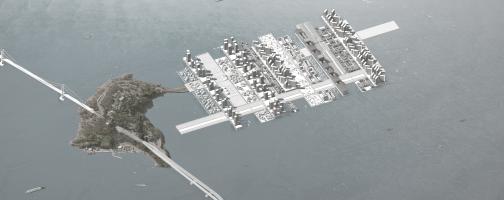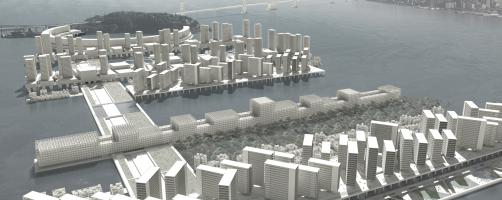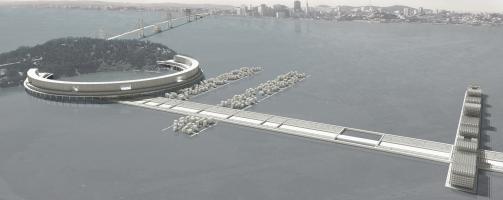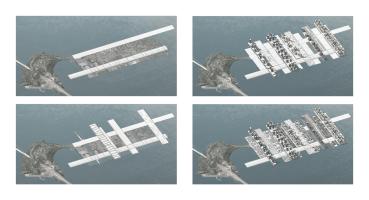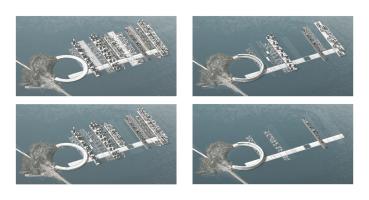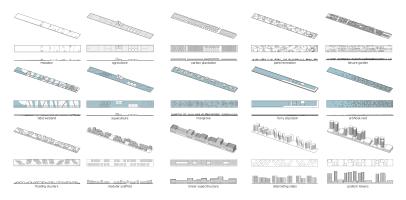Daniel Kuehn
2017
Acknowledging the social, political, and cultural implications rooted in the historical relationship between land, architecture, and urbanism, Common Ground expands upon its lineage to investigate environment and the city as pressing subjects of contemporary discourse: exploring their confluence as means to rethink the rhetoric of sustainability. The thesis envisions a flexible urban framework situated on Treasure Island, San Francisco, that tests the potential of augmenting coastal cities — buttressing their social, cultural, and environmental ecology — against the immediate influences of climate change. Explored is an alternative to the current propensity to dispense infrastructures that obfuscate the effects of sea level rise, instead developing a speculative urbanism where environment, urbanism, and infrastructure are interdependent and intertwined. The thesis is manifest as a temporary community for first world climate refugees that poses the city as transient, evolving over time to accommodate the social and economic construction of San Francisco as more robust measures for combating sea level rise and climate change are developed and deployed.
This thesis poses infrastructure, urbanism, and environment not as oppositional or exclusionary, but as interdependent, creating a woven sectional tapestry that engages with and adapts to the dynamics of sea level to inform and extend its vitality. Essential is the recognition that environmental and urban conditions, as ecologies, are not static, but require design responses that account for both imminent and distant futures. Accounting for the diurnal effects of tidal shifts while also acknowledging the long-term impact of sea level rise, the project rethinks the status quo of urban design. I propose an urbanism that is not resistant to the immediate effects of climate change or sea level rise, but is instead catalyzed by them, confronting their realities to inform our productive future.


